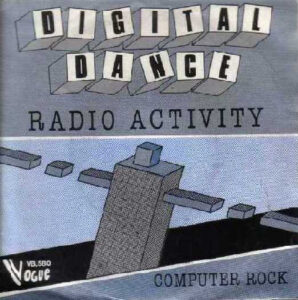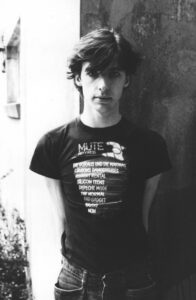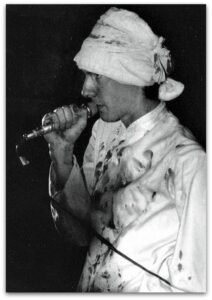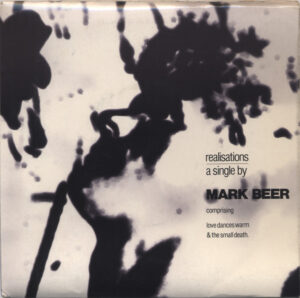Although, I am sure that all of our readers know Jean-Marc Lederman, now that we are posting this “self-biography” in chapters, I would like to remind you that he was one of the Weathermen and part of Kid Montana. He played with Fad Gadget, The The, Gene Loves Jezebel and composed music for the great Alain Bashung. On his own he has recorded a few incredible instrumental albums but has also released great albums such as 13 Ghost Stories and Letters To Gods where he has collaborated with different singers. Now he is part of the duo Rohn-Lederman that has released a couple of full albums that you should listen to as soon as possible. He also runs the Les Disques De La Pantoufle record label that is releasing tomorrow the first album of Intrusive Pinky and in May the new double album by Rohn-Lederman.

Digital Dance (1978-1979)
 Oh, we had one, and they made us record our very fast cover version of Kraftwerk’s “Radio-Activity”. At the end of the session, they made me do some terrible sound effects, hoping to catch on the fad of the moment, and it just ruined the whole song. Tells you that if a thing sounds bad and contrived and cheesy on Monday, still sounds the same the day after and 40 years later. Sorry Stefan, my fault.
Oh, we had one, and they made us record our very fast cover version of Kraftwerk’s “Radio-Activity”. At the end of the session, they made me do some terrible sound effects, hoping to catch on the fad of the moment, and it just ruined the whole song. Tells you that if a thing sounds bad and contrived and cheesy on Monday, still sounds the same the day after and 40 years later. Sorry Stefan, my fault.Frank Tovey/Fad Gadget #1 (part 1)
 laughed a lot. But there was no try-out, no keyboard or synths tinkering…
laughed a lot. But there was no try-out, no keyboard or synths tinkering…
Something had clicked in Frank after a few gigs: it’s like he had been showed by practice that it could work, that the songs were good, the voice was good but even more than that his FG personae and ideas had an impact on the crowd. He would go out, do his thing, see people respond to his songs, lyrics and theatrics and then he would retrieve after the gig in the gentle and shy Frank Tovey. Phil and I were providing a background that wasn’t perfect but for Frank it was a great practice for FG future.
Mark Beer, Polyphonic Size and JJ Burnell (1981)

𝐁𝐚𝐜𝐤 𝐢𝐧 𝐋𝐨𝐧𝐝𝐨𝐧 (𝐦𝐢𝐝 𝟏𝟗𝟖𝟐)



